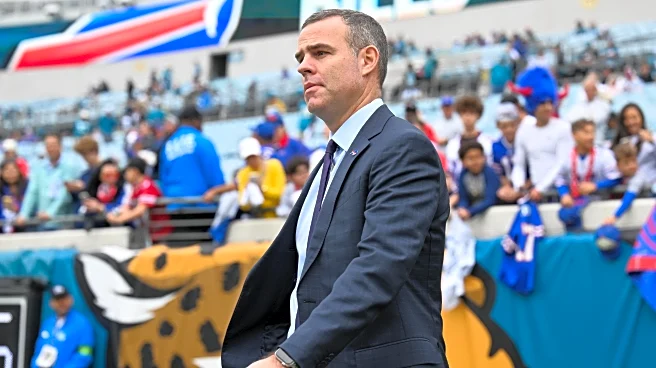Rapid Read • 8 min read
John Stamos has been cast as King Herod in the Hollywood Bowl's production of 'Jesus Christ Superstar,' stepping in for Josh Gad who contracted COVID-19. This unexpected change occurred just hours before the performance, highlighting the adaptability required in live theater. Stamos expressed his excitement and gratitude for the opportunity on social media, stating he is ready to take on the challenge with less than 24 hours to prepare. The production, directed by Tony winner Trujillo, features a star-studded cast including Cynthia Erivo and Adam Lambert, and runs from August 1-3, 2025.
AD
The sudden casting change underscores the ongoing challenges faced by the entertainment industry due to health risks like COVID-19. It highlights the resilience and flexibility required in live performances, as productions must adapt quickly to unforeseen circumstances. This situation also raises questions about the ability of last-minute replacements to maintain the energy and quality of the show. Stamos, with his musical talents and stage experience, is well-suited to meet these demands, showcasing the industry's capacity to overcome obstacles and continue delivering performances.
As the show approaches, audiences are eager to see how John Stamos will interpret the role of King Herod. The production's success will depend on the cast's ability to adapt to the last-minute changes and deliver a memorable performance. This event may prompt other productions to reassess their contingency plans for similar situations, ensuring they can swiftly respond to health-related disruptions. The entertainment industry will continue to monitor and implement strategies to mitigate risks associated with live performances.
This development highlights the broader implications of health risks in the entertainment industry, emphasizing the need for robust health protocols and contingency planning. It also reflects the cultural significance of live theater as a resilient art form capable of adapting to challenges. The industry's ability to navigate these disruptions may influence future productions and audience expectations, potentially leading to innovative approaches in live performance management.
AD
More Stories You Might Enjoy












